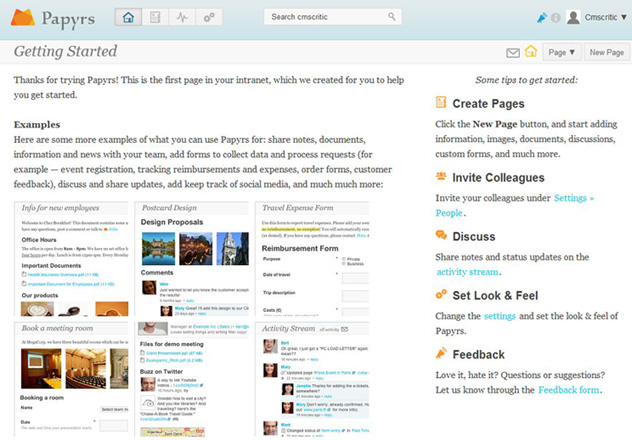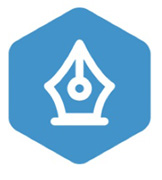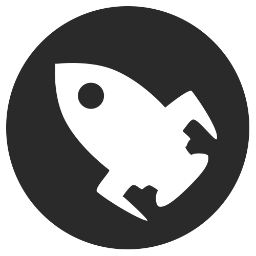 As most of you know we are big supporters and partners with Startup America. That’s why when Startup America Managing Director Donna Harris and Startup DC Director Evan Burfield launched 1776dc, a new incubator and accelerator in our nation’s capital, we were very excited.
As most of you know we are big supporters and partners with Startup America. That’s why when Startup America Managing Director Donna Harris and Startup DC Director Evan Burfield launched 1776dc, a new incubator and accelerator in our nation’s capital, we were very excited.
We’re going to be making a trip to DC to cover 1776 more in-depth. In the meantime we got a chance to interview Frederique Camapagne Irwin, founder of DC startup Her Corner.
“Her Corner is a resource for women entrepreneurs who are committed to growth in their companies. We build forum networks (or circles) of women business owners, in a hyper-local (neighborhood based) and face-to-face setting, so that women can come together to collaborate and work on building their businesses. We are a membership-based organization with requirements to join and monthly dues. We are currently DC / VA / MD based with plans to expand outside the DC region in 2013.” Irwin told nibletz.com in an interview.
Check out the rest of the interview below:
In layman’s terms, how does it work? (In other words how would you explain it to your grandmother)
If a woman business owner is at least 1 year into her business, building her own brand (sorry, no stell and dot resellers, or realtors with larger brands,) and fully committed to growth (doing this full time and not also working elsewhere,) we encourage her to apply for a seat in a group near where she lives.
Each neighborhood group meets over dinner, in member’s homes, with a professional facilitator to discuss business growth topics, remain accountable to one another and to help each other with business opportunities or challenges. Outside the group meeting, members receive an accountability partner with whom to work with on a regular basis, as well as an invitation every other month to attend a speaker series where they can meet and network with the other members of Her Corner across the region. We also have a private social network that was built specifically for Her Corner where members and build a profile, include an “offer” to other Her Corner members, see what events other members are attending, and they can also join sub-groups (e.g. women in manufacturing, women looking to raise capital, etc.)
Overall, we create the community and the resources around women to help them grow their business.
Who are the founders and what are their backgrounds?
Our founder is Frederique Irwin, a former management consultant and serial entrepreneur. Frederique Irwin has more than 17 years of management consulting and entrepreneurial experience. She has served as strategic advisor to CEOs of global companies focused on strategic planning, and growth management. Frederique has also built several companies, including an international import company that is still running and several service-related companies. Today she applies her entrepreneurial experience, management consulting background and business operations expertise with a strong network of personal connections to help business owners achieve the next stage of business growth through the in-person business groups offered via Her Corner.
We also have three (3) DC-Area facilitators, women who are also running their own business, but who work for Her Corner to run and facilitate groups. Each facilitator comes from a business background, either an MBA or a strategy or business operations background. They must also be strong personal facilitators and natural connectors. All Her Corner facilitators start as members first.
What’s the startup scene/culture like where you’re based?
Intense. Very long hours, so much to do, a crazy amount of opportunity to pursue; but the most rewarding experience and most fun I have ever had. [Even my kids know and support how much I love Her Corner, and they’ve said that they hope my new baby will be a girl so that she can get involved in Her Corner too! J]
How did you come up with the idea for HerCorner?
I built Her Corner for myself. A few years ago I was building my 3rd business and while I was very involved in local area networking and in some lead-share groups, I was also looking for something where I could meet more women “like me” who understood that women build businesses for different reasons than men do, and that we build them differently too. I wanted to find something near where I lived, at hours that fit my busy life and family, in a more feminine setting – and I wanted to build real relationships. I realized that women naturally will help one another, and that there’s nothing more irritating to us than someone handing us a “deal sheet” to track what we’ve done for others – because we’re going to do it anyway! I ran my own personal Her Corner group, as well as 4 other neighborhoods, for about 2 years before I decided there might be a market for this on a much larger scale.
Why now?
It’s a perfect time for a woman-only business owner network like Her Corner: we’re seeing a rise in women-owned businesses (7.8M in 2007 vs. 8.3M in 2012), interest in starting a business is coming even earlier for women (a recent Sage study showed half of all women 18-24 want to start their own businesses,) the access to capital is beginning to thaw (there are more services to teach women how to go after capital, as well as more women-led funds like Women’s Venture Capital Fund and Illuminate Ventures.) And finally, women are more educated than ever before; they’re looking to share that education and experience with one another to help one another accelerate growth.
 Why 1776?
Why 1776?
Lots of reasons, really! The energy and exposure to other entrepreneurs is one of the most valuable things a business owner can expose him or herself to. The ideas around the office, the access to speakers, visitors and even potential investors is unique and difficult to find all under one roof. The founders of 1776, Donna Harris and Evan Burfield, are former business owners whom I have known and admired for years – they know what it takes to build a business and they are trying to create that environment for those of us in the development stage today. And finally, as a woman, it is so important to be surrounded by fellow entrepreneurs and colleagues and not to isolate oneself.
What problem does Her Corner solve?
Most women business owners are not fans of networking in the traditional sense; they often feel isolated in their business, and they miss the collaboration and team environments of previous companies. They are very smart and motivated but sometimes they get “stuck” trying to move through a decision, opportunity, or change, and they want to talk though some of the decision points they are facing. Given how busy women are, they don’t have a high tolerance for the posturing and potential bologna that you sometimes find in other peer-group forum settings.
Her Corner creates a positive environment where we encourage our members to think bigger, to collaborate to accelerate the possibilities, and to look at networking differently – rather than coming to a large event and handing out business cards, we ask you to start with your small group and start by asking, “tell me about yourself and how can I help you.” We have created an environment that is intrinsically feminine – we meet in one another’s homes, over dinner, and we build relationships first. This unique approach is driving business referrals, business leads, new business development, and new business partnerships in ways we had never imagined.
What is your competition?
There are lots of competitive networking events available to business owners (for example Chamber of Commerce events,) and also lots of forum-like groups for business owners (for example Vistage or EO.) But we have yet to find a network that is exclusively for women business owners (vs. all women in business,) and a forum-like group that is for women only and run by actual business owners with MBAs and strategy background (vs. information marketers, for example.) We don’t compete with the education seminars or the consultants; we only compete for women’s time and commitments to other groups.
And what’s your secret sauce?
We’re members too! Everything we do in Her Corner was built first for us and every decision we make is based on whether this is something that we would have wanted or needed for our own business. We’re not trying to build something new and hoping that it works, we’re building what we know works and packaging it the way women would want it – the way we would want it!
What are some milestones you’ve achieved?
Since we launched Her Corner, we had to prove that members would be willing to pay for the service, that we could teach others to facilitate and run groups beyond the founder’s ability to run them herself, and that we could recruit, launch, and run groups in neighborhoods that were outside the founder’s personal network.
We launched in August 2012, and within the first 6 months we have interviewed and accepted 125 new paying members (expected to hit 250 by August), hired 3 (soon to be 4) new facilitators to run new groups, we now have 13 groups running across the DC area (planning for 20 by August) and we’ve expanded into areas like Leesburg, VA (and soon Baltimore, MD) where the founder does not have a personal network.
We have also secured sponsorships with organizations like AU’s Kogod School of Business, local area businesses like Xenith Bank, Urban Igloo, Glen’s Garden Market, and La Ferme restaurant.
What’s your next milestone?
Critical for us in 2013 / 2014 will be our ability to implement Her Corner in new cities and to prove the model outside the DC area. This will allow us to build a more robust growth plan with hard numbers and real time frames that will allow us to talk to potential investors about our growth plans.
Who are some of your mentors and business role models?
My mentors are some of the men I worked with in management consulting, the men who taught me how to build, run and optimize a business – but who also taught me leadership skills and the importance of family and values. I also have mentors around me who are women who have built and sold companies before me and who are in my close circle of friends, keeping an eye on what I am building to help me avoid land mines. And my business role models today – Marissa Meyer and Sheryl Sandburg – two women who encourage other women to push forward and not be defined by our personal lives.
What’s next for Her Corner?
These days we’re launching new groups every month, while also filling the few open spots in existing groups. To a certain extent, I’d like to stabilize our growth in the DC area, get my founding members more involved in the improvement and representation of Her Corner, hire a few strategic position, and begin to focus my attention on the development and implementation of Her Corner in new cities.
Where can people find out more:
Online people can find us at: www.hercorner.org, On Twitter, we’re at @hercorner And on Facebookwe recently launched a new page (our presence has been private so far and for members only)
Get tickets to everywhereelse.co 2014 at 2013 prices now, here!

 When I first sat down with Andrew Bender, President and CEO of instaGrok I was mesmerized at what I saw. I originally though that a “research engine” would be boring, or at best a fancy way to say search engine, and Google has determined we don’t need anymore of those.
When I first sat down with Andrew Bender, President and CEO of instaGrok I was mesmerized at what I saw. I originally though that a “research engine” would be boring, or at best a fancy way to say search engine, and Google has determined we don’t need anymore of those. Bender showed me two examples. The first was gravity. As you can see from the grok above gravity is connected to Einstein, equation, orbit, object, universe, scientists, force, astronaut, and Newton. When you’re on the instaGrok site if you click on any of the circles another web appears showing how the connections are connected to other things.
Bender showed me two examples. The first was gravity. As you can see from the grok above gravity is connected to Einstein, equation, orbit, object, universe, scientists, force, astronaut, and Newton. When you’re on the instaGrok site if you click on any of the circles another web appears showing how the connections are connected to other things. The other topic we looked at was “Brown v Brown” and a user built grok. This grok features a bunch of links that the creator has added, or pinned, to it with the information they need.
The other topic we looked at was “Brown v Brown” and a user built grok. This grok features a bunch of links that the creator has added, or pinned, to it with the information they need.
















